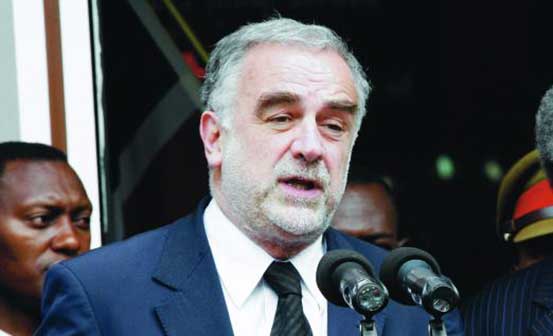×
The Standard e-Paper
Join Thousands Daily

Fresh details have emerged on how the International Criminal Court (ICC) attempted to lure former police boss Hussein Ali to testify against President Uhuru Kenyatta.
The fresh revelations indicate the prosecution, then led by Chief Prosecutor Luis Moreno-Ocampo, reached out to Major General Ali to testify against Uhuru and former Head of the Public Service Francis Muthaura.